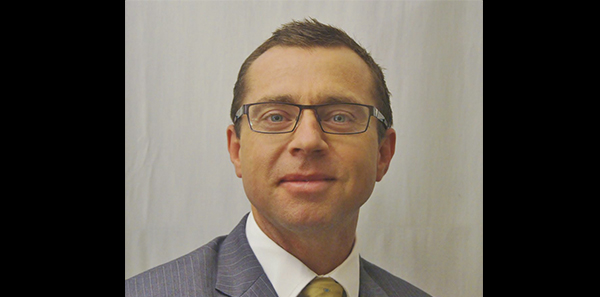1:30min

Gavin Bigland
______________________________
By Patrick Hutchens
With the removal of the Medicare fee cap and the introduction of changes to the Medicare Benefits Schedule in 2015, practice owners may be contemplating a change to their billing structure.
Some may be considering whether to switch to private billing if they are a wholly bulk-billing practice, or to phase out bulk-billing of patients who are not pensioners or who do not hold a health care card.
Two practice owners who have introduced private billing share their experiences.
Gavin Bigland
Gavin Bigland, from Bigland and Cowley Optometrists in Springwood NSW, changed to private billing about 10 years ago, when the practice had been recently established. Without a large patient base, introducing private billing could have been seen as risky.
‘It became complex deciding who we bulk-billed and who we didn’t and eventually we had to make the commitment that we were no longer a bulk-billing practice,’ Mr Bigland said.
Bigland and Cowley Optometrists staggered the changes over 12 months and continued to bulk-bill children, heath care card holders and pensioners. They found that the biggest hurdle was communicating the change to their patients.
‘Once we got over that, we became very confident in how we presented it,’ Mr Bigland said.
‘Our business model is based around delivery of good service and when people pay the fee, I think they see it as good value,’ he said.
There are still patients who call the practice to ask whether they bulk-bill. Mr Bigland has found that some patients are ideologically opposed to paying for services, while others are less concerned once they find out that their claim can be conveniently processed through the Medicare Easyclaim system.
He estimates that 20 to 25 per cent of their consultations are still bulk-billed. These are for pensioners, children and people on low incomes. The practice is now reviewing this policy and is looking at restricting bulk-billing to pensioners and health care card holders.
‘We’re trying to make sure the consulting side of the business stands on its own two feet, so to speak. We don’t want to be treating it as a loss leader,’ he said.
With the removal of the Medicare fee cap on 1 January, Mr Bigland planned to increase consulting fees by a minimum of 10 per cent.
Trevor Williams
Trevor Williams changed to private billing in the middle of 2014. For the first month, the practice in Cooparoo QLD continued to bulk-bill pensioners but then moved to charging those patients as well, to ensure their consultations were not seen to be a totally free service.
The practice found that the change was mostly well received but it did lose patients. In a letter of complaint, one patient questioned whether it was ‘even legal’ to drop bulk-billing.
Mr Williams has repositioned his practice and used the switch to private billing as a kind of screening tool.
‘Beforehand we were booked-in virtually three weeks ahead, and now it’s dropped to about one week ahead. I had been coming in at 7.30 am to do ortho-K patients and I would be double-booked throughout the day. Now there’s none of those double bookings; it’s just a normal day, it’s less stressful,’ he said.
Mr Williams estimated that in the first three months after introducing private billing, he had 80 fewer consultations than he would usually have seen in that period, but the business was still more profitable through consultations and frames.
The practice noticeably lost those patients who usually took their scripts away at the end of a consultation. ‘I used to print out a few prescriptions a week, whereas before it had been a few a day,’ Mr Williams said.
He wishes he had made the switch to private billing earlier and admits that his own uncertainty delayed the change.
Visit the Mentoring Program on the Optometry Australia website.